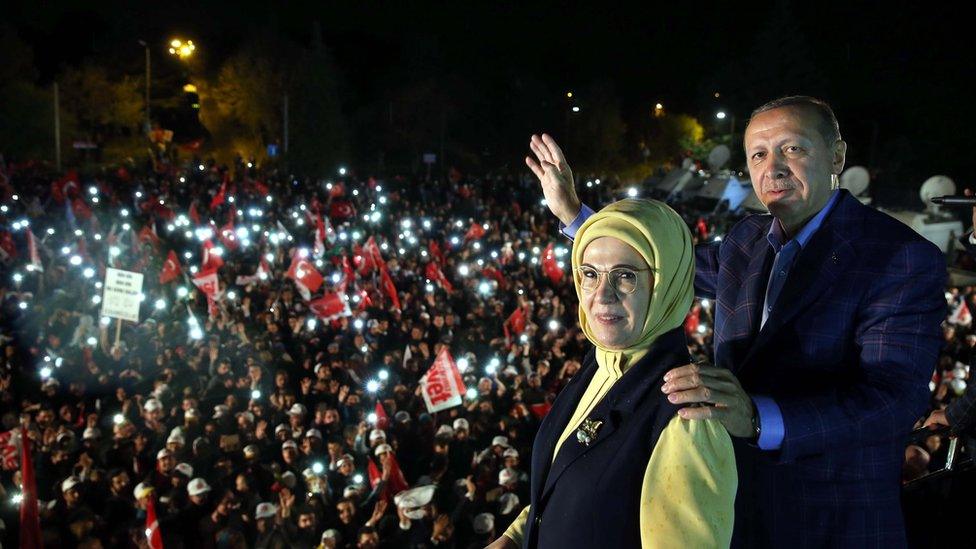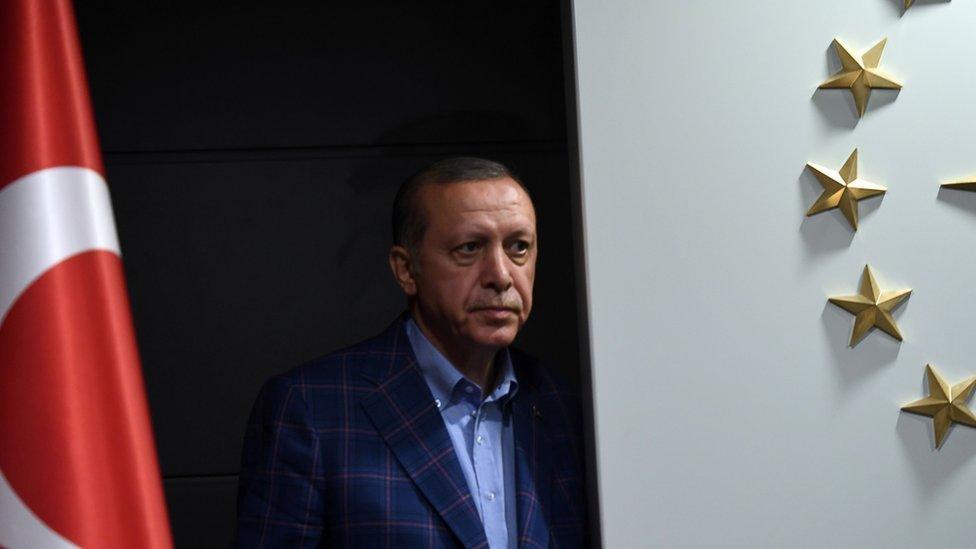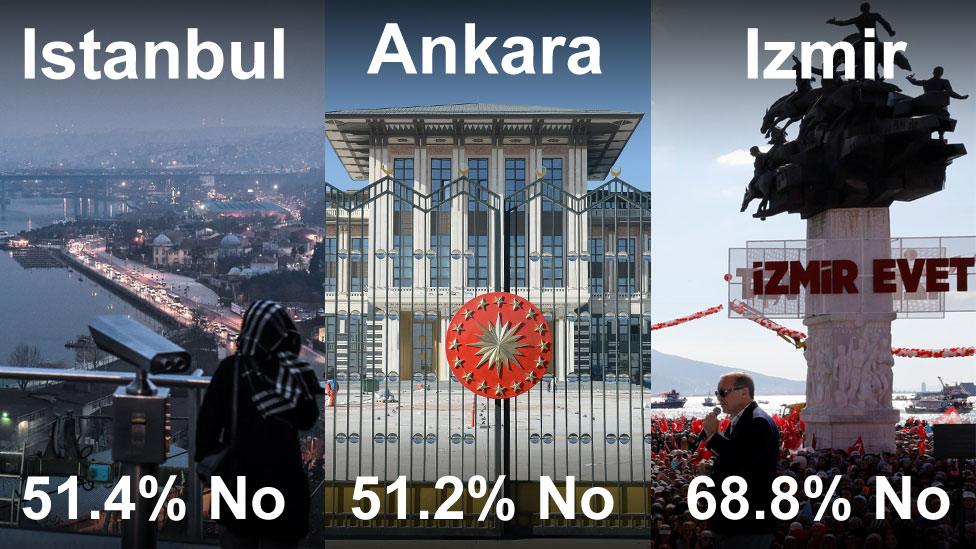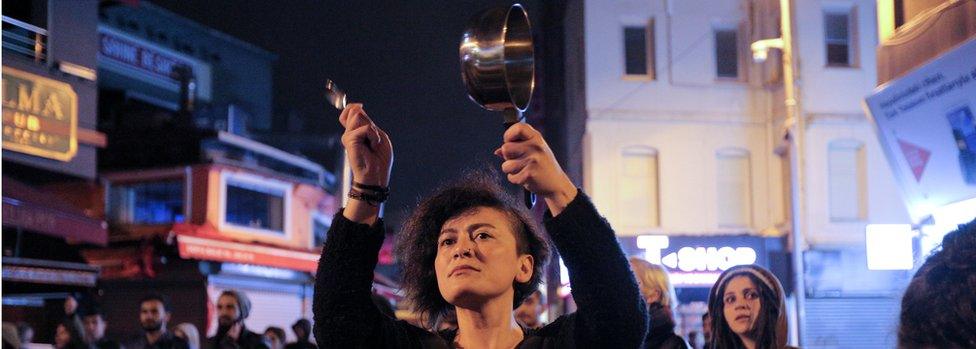Turkey bitterly split as Erdogan loses vote in key cities
- Published

While the president and his wife celebrated, it emerged that three key Turkish cities voted No
"I will no longer have a fear of being unemployed. I will feel more secure economically," says 26-year-old lawyer Mustafa Baskara.
He is one of the 25 million or so Turks who voted Yes in the referendum on extending President Recep Tayyip Erdogan's executive powers. For him, the future is bright.
"The Turkish lira will gain value. I will get married in July. I feel much more optimistic about my prospects," he said on the morning after the vote.
Turkey awoke to a new era on Monday. President Erdogan narrowly won the historic referendum that will replace the parliamentary system with an all-powerful presidential system.
But the result ended on a knife-edge. According to the High Electoral Board, 51.4% voted Yes and 48.6% No.
Turkey was already a polarised country, but after a divisive referendum campaign - held under a state of emergency - it seems more divided than ever. The No campaign complained of an unfair contest with restricted access to airtime on the national media - and such a narrow margin of victory for the other side has only sharpened their anger.
Read more on this story:

Yes voters celebrated the referendum result in Istanbul
Amid opposition claims of serious irregularities affecting more than two million votes, a shadow has already been cast over the legitimacy of the vote, polarising people even further.
Three cities
On the streets of Istanbul jubilant crowds chanted President Erdogan's name on Sunday night, honking car horns and shouting "God is great!".
But in some areas you could also hear the banging of pots and pans - a popular way of protesting, since the massive anti-government riots in 2013, against President Erdogan and his governing AK party.
Protesters march through the Turkish capital, calling for a recount
In Besiktas, a neighbourhood in Istanbul where 83% voted a resounding No, hundreds took to the streets.
Marchers demanded that the government resign, saying the vote was rigged, and called on fellow residents to join the protests on the street.

A photo of a tired, nervous president about to declare victory was widely circulated online
"I am about to have a nervous breakdown," one young woman said as she banged on the cooking pot she carried with her.
A nearby couple were discussing whether human rights would suffer under the proposed constitutional changes.
There were similar scenes in some neighbourhoods of other big cities, such as the capital Ankara and the western city of Izmir.
Never before in the 14-year-rule of the governing AKP party has a majority in these three cities voted against President Erdogan. Between them, they account for around a quarter of Turkey's population. This is being seen by many as a message from Turkey's urban centres that "we are not convinced".

As he prepared to give his victory speech late on Sunday, a picture of the president looking tired and nervous was widely circulated in the media and online, and perhaps summarised the mood.
Many here believe this could be a Pyrrhic victory for him; that the political toll of the referendum campaign and his narrow victory might in the end be so devastating that it could actually prove tantamount to defeat.
What next for Turkey?
President Erdogan had vowed that stability would be maintained in Turkey if the proposed constitutional changes were accepted.

Protesters banged pots and saucepans in protest at the result
The Turkish lira made gains against the dollar on Monday after the initial results were announced, but if the results are officially challenged and the votes are recounted, and if the result remains disputed, then stability may seem a far-off prospect.
The question now is whether the narrow margin of victory will prompt a more aggressive response to dissent or whether President Erdogan will make concessions to his opponents.
Will he indeed push to bring death penalty back as he promised? Or might he try and rebuild bridges with Europe and put the idea of new accession negotiations to join the EU to another referendum of the people?
Could there be early elections?
Maybe not even President Erdogan himself yet knows the answers to these questions and many of those who voted against him yesterday may well be wondering what will happen next.